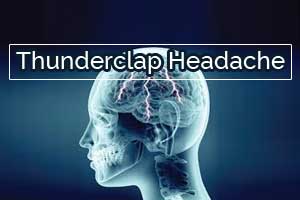- Home
- Editorial
- News
- Practice Guidelines
- Anesthesiology Guidelines
- Cancer Guidelines
- Cardiac Sciences Guidelines
- Critical Care Guidelines
- Dentistry Guidelines
- Dermatology Guidelines
- Diabetes and Endo Guidelines
- Diagnostics Guidelines
- ENT Guidelines
- Featured Practice Guidelines
- Gastroenterology Guidelines
- Geriatrics Guidelines
- Medicine Guidelines
- Nephrology Guidelines
- Neurosciences Guidelines
- Obs and Gynae Guidelines
- Ophthalmology Guidelines
- Orthopaedics Guidelines
- Paediatrics Guidelines
- Psychiatry Guidelines
- Pulmonology Guidelines
- Radiology Guidelines
- Surgery Guidelines
- Urology Guidelines
Severe 'Thunderclap' headache after consuming chilli pepper

A patient developed severe headache after consuming chilli pepper and his pain was so intense that he had to seek emergency care.He was taking part in a hot chilli pepper eating contest which had these unexpected consequences.The young man ended up in emergency care with excruciatingly painful episodic headaches after eating a ‘Carolina Reaper,’ the world’s hottest chilli pepper.The case appeared in the journal BMJ Case Reports.
His symptoms started immediately after he had eaten the chilli, with dry heaves. But he then developed severe neck pain and crushingly painful headaches, each of which lasted just a few seconds, over the next several days.His pain was so severe that he sought emergency care, and was tested for various neurological conditions, the results of which all came back negative.
But a CT (computed tomography) scan showed that several arteries in his brain had constricted, prompting doctors to diagnose him with thunderclap headache secondary to reversible cerebral vasoconstriction syndrome (RCVS).
RCVS is characterized by temporary artery narrowing often accompanied by thunderclap headache. It doesn’t always have an obvious cause, but can occur as a reaction to certain prescription meds, or after taking illegal drugs.
This is the first case to be associated with eating chilli peppers, explain the authors, although they point out that eating cayenne pepper has been linked to sudden constriction of the coronary artery and heart attacks.
“Given the development of symptoms immediately after exposure to a known vasoactive substance, it is plausible that our patient had RCVS secondary to the Carolina Reaper, write the authors.
The man’s symptoms cleared up by themselves. And a CT scan 5 weeks later showed that his affected arteries had returned to their normal width.

Disclaimer: This site is primarily intended for healthcare professionals. Any content/information on this website does not replace the advice of medical and/or health professionals and should not be construed as medical/diagnostic advice/endorsement or prescription. Use of this site is subject to our terms of use, privacy policy, advertisement policy. © 2020 Minerva Medical Treatment Pvt Ltd